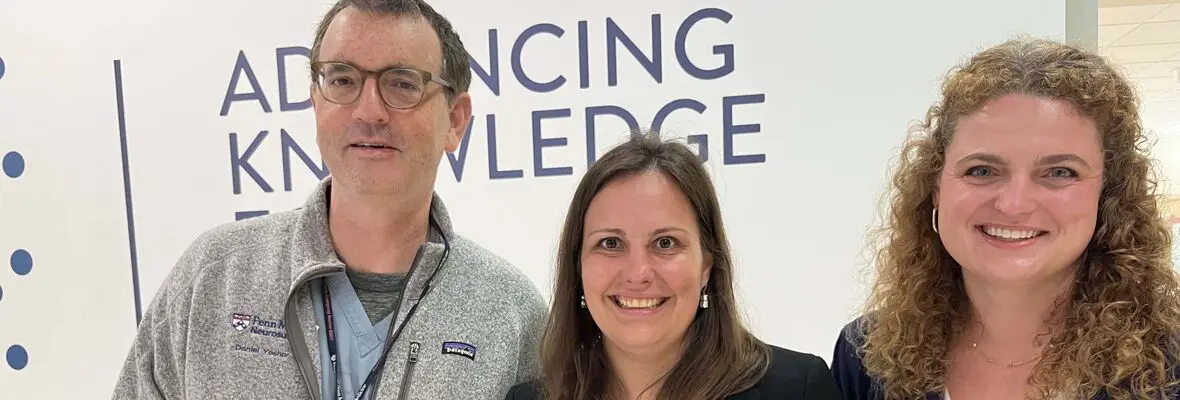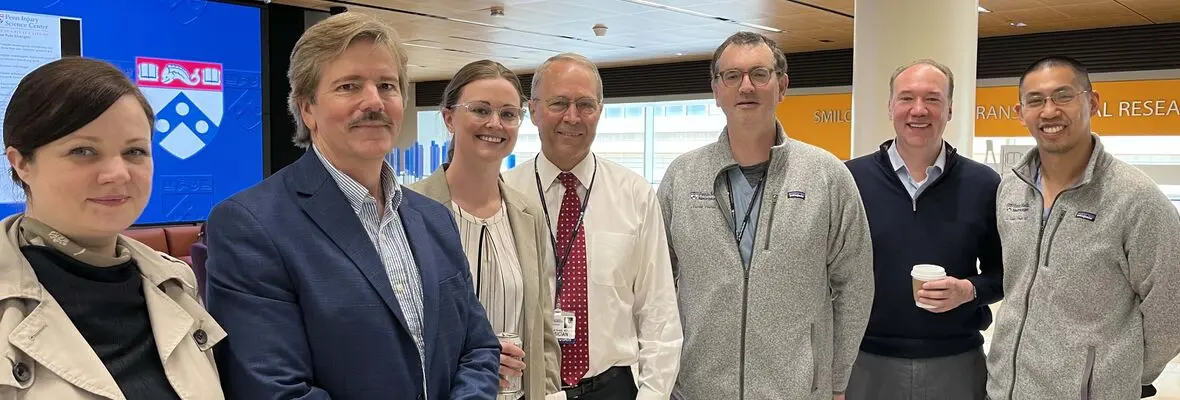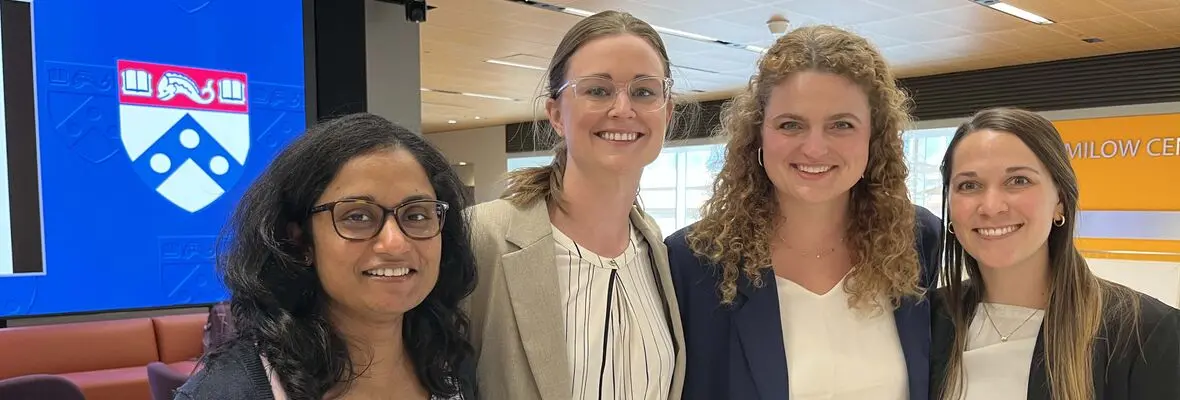An Interdisciplinary Research Collaborative Improving Outcomes of Traumatic Brain Injury
Penn's Center for Brain Injury and Repair (CBIR) is a research-driven, interdisciplinary collaborative with the mission to better understand the underlying cellular and molecular events that occur following a Traumatic Brain Injury (TBI) to improve management of patient care and quality of life.

Traumatic brain injuries are complicated – complicated due to variety of both severity and type of injury, and particularly complicated by the effects these injuries have on a very complex brain. In order to better understand these complicated effects, the Penn Center for Brain Injury and Repair has assembled a diverse and highly collaborative team to address the full spectrum of traumatic brain injuries. With this multi-disciplined approach, we have uncovered several important cellular and molecular mechanisms of traumatic brain injury. We have found that all forms of brain trauma share some of these mechanisms, while others are unique to specific brain injury circumstances.
We believe that the Penn Center for Brain Injury and Repair team is one of the strongest, most integrated research teams. Working in a highly collaborative environment, researchers are studying ways to significantly improve the quality of life for people suffering from traumatic brain injury and to prevent the "secondary" or delayed injuries that are initiated by brain trauma.
The Penn Center for Brain Injury and Repair network optimizes the University of Pennsylvania's vast array of expertise with principal investigators and their teams representing disciplines critical to the research, assessment, diagnosis and treatment of Traumatic Brain Injury (TBI). For over 30 years, the aim of CBIR has coordinated the science and practice from a diverse set of disciplines that span:
- Neurosurgery,
- Bioengineering,
- Pharmacology,
- Pathology,
- Neurology,
- Pediatrics,
- Neuroradiology,
- Rehabilitation, and
- Emergency Medicine
We believe that bringing these disciplines together will improve management of patients acutely following brain injury, and implement ways to significantly improve the quality of life for people suffering from TBI
Today there are no treatments available to halt the progressive damage initiated by brain trauma. Yet there is hope, based largely on exciting, groundbreaking research at the Penn Center for Brain Injury and Repair. With continued financial support, we expect to make a significant and lasting contribution to the successful treatment of brain trauma. Donate today!
Please note, for patient care call Penn Neurology University City at 215-662-3606.
For children and young adults call CHOP's Minds Matter 215-590-6919.




